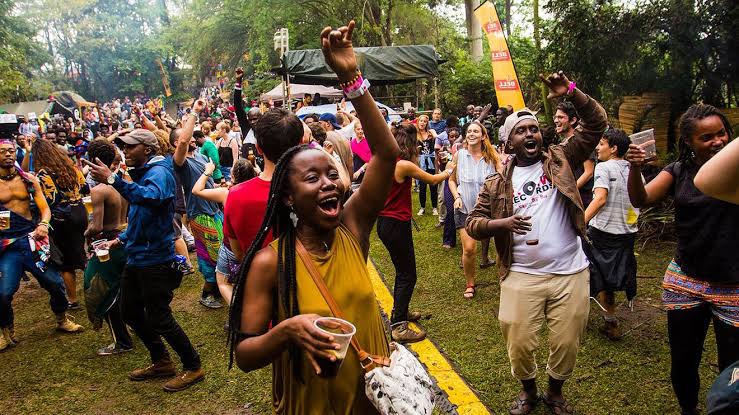As the Nyege Nyege Festival prepares to return to Jinja from November 14-17, religious leaders in Uganda’s Busoga region have intensified their opposition, arguing the event promotes values at odds with community morals.
Meanwhile, advocates like First Deputy Prime Minister Rebecca Kadaga defend the festival as an essential economic driver and cultural showcase.
Prominent religious leaders, including Bishop Zachary Sserwadda of Evangel Churches Uganda and Bishop Fred Maka of Elim Churches, argue that Nyege Nyege undermines moral values and promotes behaviors they describe as “immoral” and “unrestrained.”
Their criticism extends to the festival’s use of biblical scripture, which Bishop Maka claims is taken out of context to justify unbridled freedom. “Freedom has a framework,” he argues, asserting that true freedom should not be an excuse for “sinful practices.”
Pastor Samuel Tumwebaze has echoed their concerns, warning that hosting events like Nyege Nyege could lead to divine retribution. Tumwebaze also raised economic grievances, arguing that the high ticket prices exclude most locals in Busoga, a region grappling with economic hardships. In his view, the festival risks increasing poverty rather than benefiting the local community directly.
First Deputy Prime Minister Rebecca Kadaga and other proponents of the festival highlight Nyege Nyege’s substantial economic impact. Kadaga contends that the festival boosts tourism, fills hotels, and brings jobs to Jinja, which, she argues, outweighs the criticisms raised by religious leaders. “Nyege Nyege is an important part of the region’s cultural and economic life,” she stated, framing the festival as a critical engine for local development.
As one of East Africa’s largest music and arts festivals, Nyege Nyege attracts thousands of visitors, celebrating diversity and artistic expression. Festival organizers have committed to maintaining a respectful and secure environment, aiming to position Uganda as an appealing tourist destination.
As November 14 approaches, the conversation over Nyege Nyege has polarized communities, leaving Ugandans to navigate a complex dialogue about the boundaries of cultural expression, economic growth, and societal values. The outcome of this debate may influence the festival’s future and shape broader discussions on how Uganda balances tradition with modern cultural influences.







